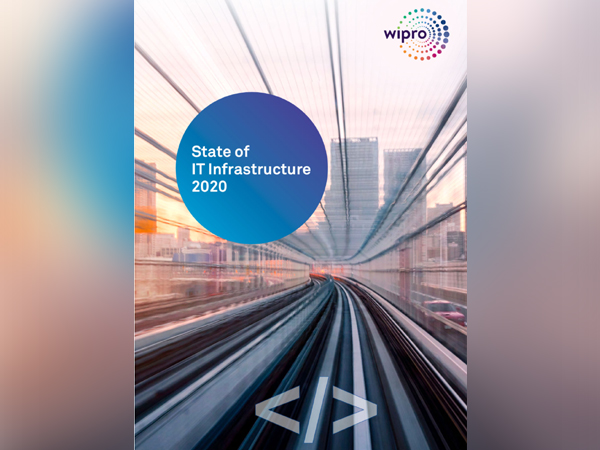
Bengaluru (Karnataka) [India], June 15 (ANI): Nearly 75 per cent of organisations globally require increased infrastructure budget for new tools, technologies and collaborative networks to navigate the Covid-19 pandemic, according to Wipro’s ‘State of IT Infrastructure 2020’ report released on Monday.
In addition, 81 per cent of enterprises are reskilling their existing workforce to increase digital penetration, signifying major changes on the horizon for IT infrastructure. The report provides a multi-dimensional view of how the Covid-19 pandemic will impact IT infrastructure trends in the immediate future.
With uncertainty in demand, there is a rapid shift in channel preferences, the largescale adoption of work from home brings new challenges for businesses and their suppliers. The report also looks at the new tools, technologies and collaborative networks that will emerge.
It shares insights into various aspects of the new digital workspace, the approach taken by organisations to consistently deliver the user experience, enhance resiliency of services and make the environment more secure amid new threats.
In an enterprise, says the report, on an average 43 per cent of the IT infrastructure spend budget is used for transforming the business. This suggests that there is considerable scope for innovation.
About 24 per cent of organisations do not have a single cloud partner. The single-largest expense account will be for data centre cloud, heralding a new phase in cloud adoption as organisations move from a ‘cloud-first’ to a ‘cloud smart’ approach.
The report said nearly 54 per cent organisations will be adopting containers, a trend that will make open source a more compelling choice across IT infrastructure. The rapid evolution of software-defined resources and the emergence of artificial intelligence for IT operations (AIOps) will advance automation programmes.
The annual study is based on three months of primary and secondary research including surveys of C-level executives, vice presidents, business unit leads.
These respondents belong to the banking, IT services insurance, industrial and process manufacturing, utilities, oil and gas, communications, securities and capital market, automotive, consumer packaged goods and other industries.
The poll was conducted across the United Kingdom, North America, Asia Pacific region, Continental Europe, the Middle East and Latin America. (ANI)
















